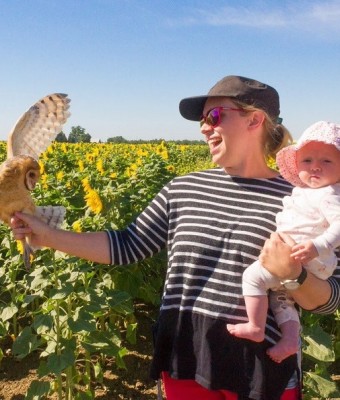
Kross, Sara
Born and raised in New York City, Sara Kross completed a BSc at Cornell University, a masters at the University of St. Andrews in Scotland, and a PhD at the University of Canterbury in New Zealand. Dr. Kross returned to the United States as a David H. Smith Postdoctoral Fellow at UC Davis and most recently was an Assistant Professor at Sacramento State University. In addition to her academic pursuits, Dr. Kross co-founded and managed a community-based NGO dedicated to the conservation of the threatened New Zealand falcon, has worked on science policy statements, and is dedicated to mentoring and training young scientists.
My research seeks to untangle the complex relationships between conservation biology, animal behavior, and anthropogenic forces by bridging diverse topics including predator-prey interactions, ecotoxicology, restoration ecology, and human-wildlife conflict. I have primarily focused on better understanding the interactions between wildlife and people, especially in human-dominated systems like farms and cities, which I see as critical frontiers in wildlife conservation.
Kross, S.M., Ingram, K.P., Long, R., & Niles, M. 2017. Farmer perceptions of wildlife targeted by conservation schemes differ based on growing methods, crops grown, and farmer gender. Conservation Letters
Kross, S.M., Bourbour, R.P.+, & Martinico, B.L.+. 2016. Agricultural land use, barn owl diets, and vertebrate pest control implications. Agriculture, Ecosystems & Environment. 223: 167-174.
Rochman, C.M., Kross, S.M., Armstrong, J.B., Bogan, M.T., Darling, E.S., Green, S.J., Smyth, A.R. & Verissimo, D. 2015. Scientific evidence supports a ban on microbeads. Environmental Science and Technology. 49: 10759–10761.
Kross, S.M., J.M. Tylianakis & X.J. Nelson. 2012. Effects of introducing threatened falcons into vineyards on abundance of passeriformes and bird damage to grapes. Conservation Biology. 26: 142-149.


